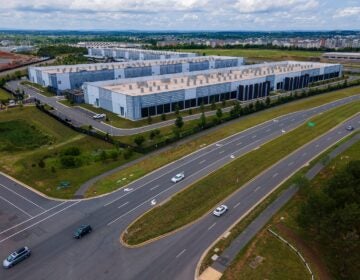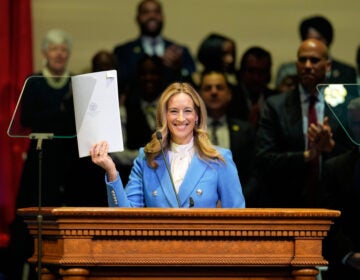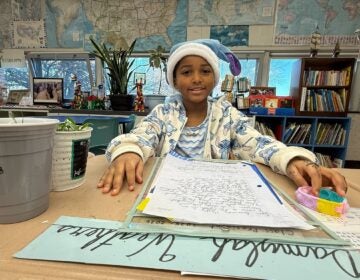Surviving Maria — from 1,500 miles away
As hurricane winds swept across Puerto Rico, journalist Syra Ortiz-Blanes watched from Philadelphia, unsure if her family back home was safe.
Listen 5:53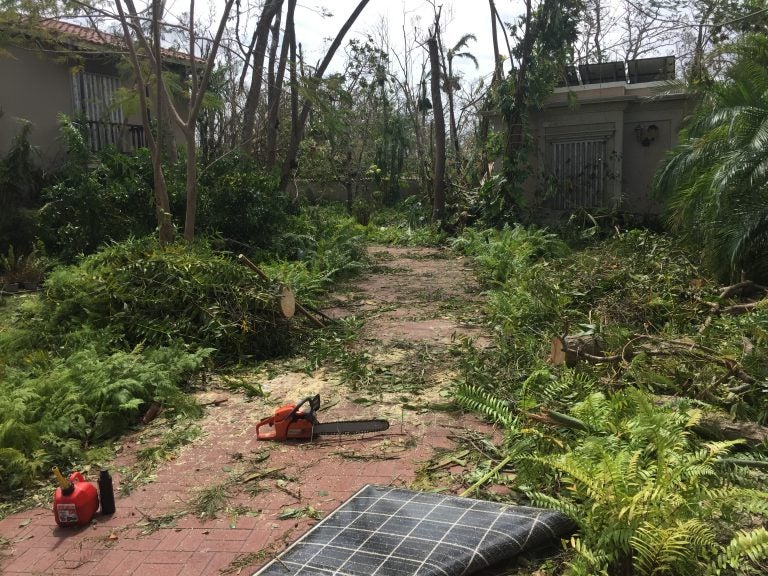
In the days after the hurricane, Mariana Ortiz-Blanes documented the devastation around her family home. She took photos and short videos — then sent them to her daughter in Philadelphia — as Hurricane Maria swept across Puerto Rico. Photo Credit: Mariana Ortiz-Blanes
It’s my first day of work after graduating college, and I’m not obsessing over which outfit to wear, or worried about making the best first impression. Instead, my mind is home in Puerto Rico.
As the storm made landfall and I slept, my mother, Mariana, sent me videos. The island will be cut off from the world soon, so every 30 minutes Mama records a new video on her phone.
“It’s an experience … that puts you in your place within the grand scheme of things,” she says in one of the video clips. “We are a little ant … in front of this unstoppable force.”
In one of the last video messages, it sounds like the wind might shatter her bedroom window. I can hear my father telling Mama to be careful, to get away. As she runs away from the shaking glass she drops the phone to the ground.
Around 7:30 a.m., her messages stop coming. So I turn to the national and international news for updates — checking constantly as I worry.
The destruction of places I know is all over my social media feeds — there’s water rushing down the street where my childhood ballet studio is located. A park near my school looks like a graveyard of palm trees.
In Philadelphia during my lunch break, I sit on church’s steps near my office, furiously trying to get in touch with my family. No answer. There are gurgling sounds instead of rings.
It’s like Maria is drowning the phone lines.
Back at work, I try to focus, but, all I can do is scroll through the devastation. I’m searching for any detail. A video on Facebook loads on my screen and sends shivers down my spine. It’s Dorado, the coastal town where my grandparents live.
The stores and restaurants there have water up to the roofs.
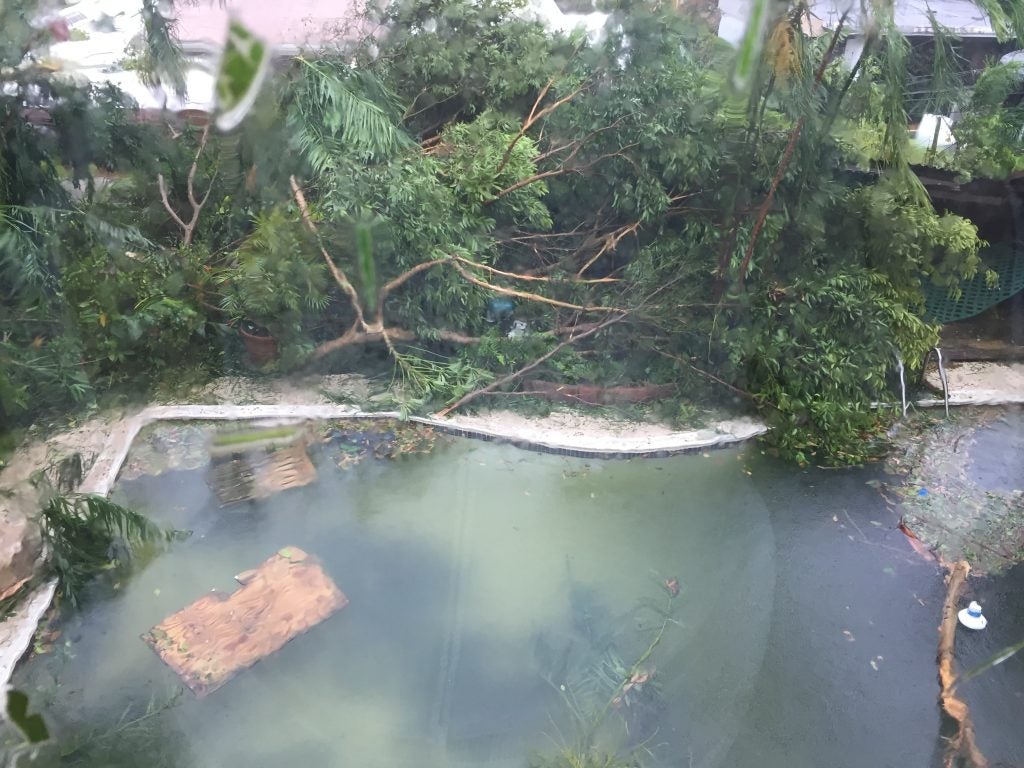
Jacobo — I call him abello — is 78. My abuela is 76 — and I have no way to know if they are safe.
My grandmother and I share the name Syra, a name we both got from her mother, my mamama.
My grandparents have protective metal hurricane shutters and a strong house, but they are alone in their home, and I’m worried about the storm’s fury.
And I am angry.
I’m in complete disbelief that they’ve decided to ride out the storm at home, instead of somewhere safer with my mother and father.
For days, I don’t hear from anyone.
Eventually, an informal communication network starts on social media — tweets, posts, relayed messages, information starts to reach me in Pennsylvania.
When Mama and I do connect, we speak on borrowed time. She’s using the cellphone of a kind stranger she met on the street, one of the lucky few with coverage and battery.
In Dorado — Hiram, a man I’ve never met who lives near my abuelos — plods through the devastated landscape to check in on neighbors. On his satellite phone, he texts updates to his sister, Tatiana, who lives in Miami. Then, Tatiana posts her conversations with her brother on Facebook. Cecilia, one of my best friends, who grew up in Dorado and now lives in Washington, D.C., sends me a screenshot of Tatiana and Hiram’s updates.
Hiram visits my grandparents and lets Tatiana know: “Jacobo Muria, familia están bien.” He doesn’t write my grandpa’s name correctly, but the message is clear: Jacobo Ortiz Murias, family are okay.”
It’s a long-distance, twisted grapevine. That’s how I figure out what’s going on with my family. When I hear my grandmother’s voice for the first time — it’s three weeks later:
“Hi Syra, I got a call from you but they told me to leave you a message, well, the message is that I love you very much.”
Over time, there are more ways to get in touch with my family. I send them batteries, walkie-talkies, flashlights. They send me stories of waiting in line for hours to buy gasoline and living with no power. I hear about the water shortages.
Nearly a year later, Puerto Rico is slowly healing. My family has found a new normal, like the refrigerator in the middle of the living room that runs on solar power.
And each time I return home to visit, there are fewer broken traffic lights and more electric lines and blooming trees.
It was hard being so far during the recovery. But now, my family is just a call or a text away.
Today — I cherish it every time the phone rings.
WHYY is your source for fact-based, in-depth journalism and information. As a nonprofit organization, we rely on financial support from readers like you. Please give today.




